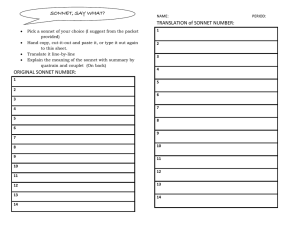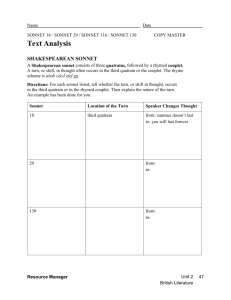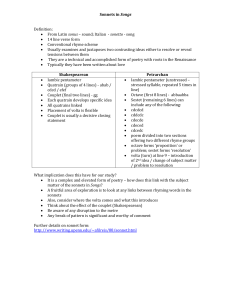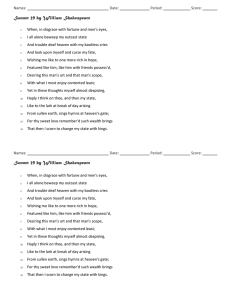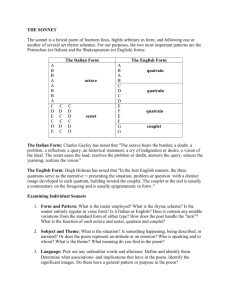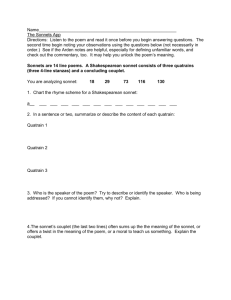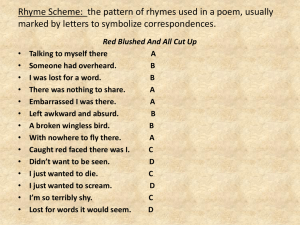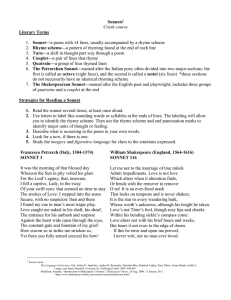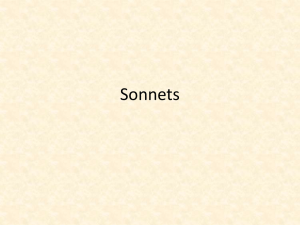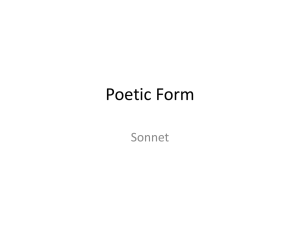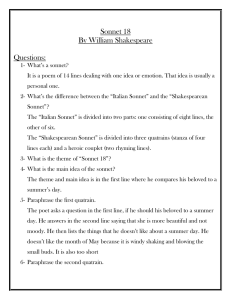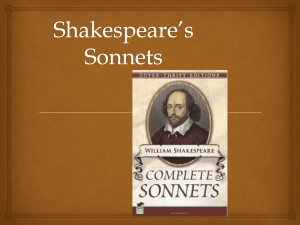Week of 11.3.14
advertisement
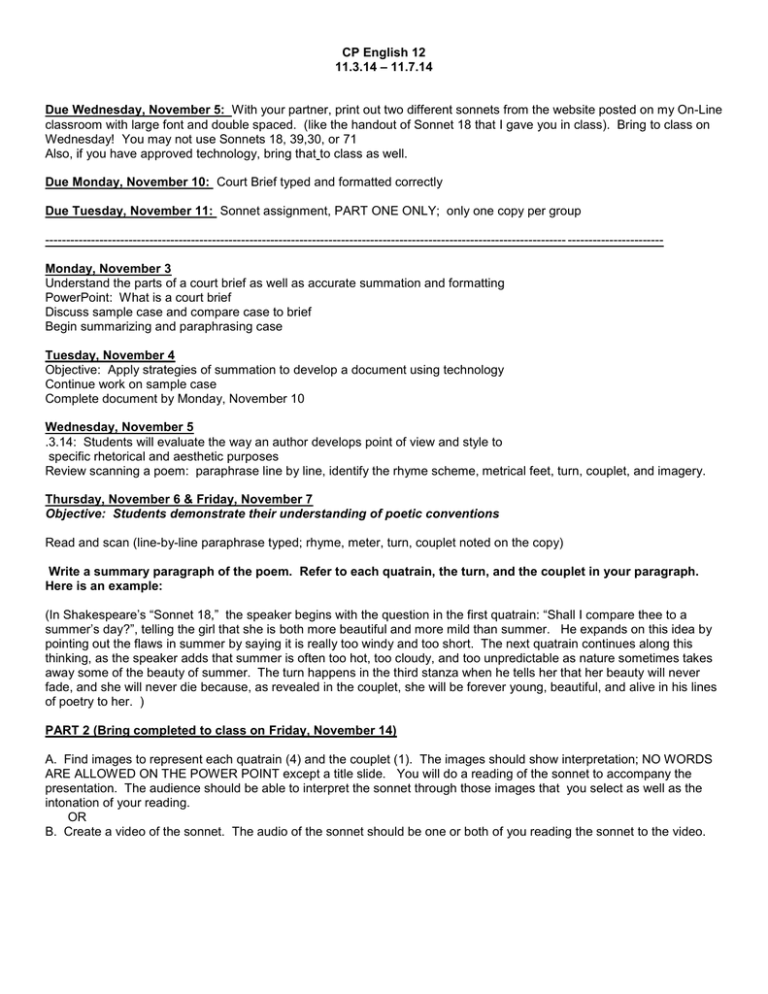
CP English 12 11.3.14 – 11.7.14 Due Wednesday, November 5: With your partner, print out two different sonnets from the website posted on my On-Line classroom with large font and double spaced. (like the handout of Sonnet 18 that I gave you in class). Bring to class on Wednesday! You may not use Sonnets 18, 39,30, or 71 Also, if you have approved technology, bring that to class as well. Due Monday, November 10: Court Brief typed and formatted correctly Due Tuesday, November 11: Sonnet assignment, PART ONE ONLY; only one copy per group ----------------------------------------------------------------------------------------------------------------------------- ----------------------Monday, November 3 Understand the parts of a court brief as well as accurate summation and formatting PowerPoint: What is a court brief Discuss sample case and compare case to brief Begin summarizing and paraphrasing case Tuesday, November 4 Objective: Apply strategies of summation to develop a document using technology Continue work on sample case Complete document by Monday, November 10 Wednesday, November 5 .3.14: Students will evaluate the way an author develops point of view and style to specific rhetorical and aesthetic purposes Review scanning a poem: paraphrase line by line, identify the rhyme scheme, metrical feet, turn, couplet, and imagery. Thursday, November 6 & Friday, November 7 Objective: Students demonstrate their understanding of poetic conventions Read and scan (line-by-line paraphrase typed; rhyme, meter, turn, couplet noted on the copy) Write a summary paragraph of the poem. Refer to each quatrain, the turn, and the couplet in your paragraph. Here is an example: (In Shakespeare’s “Sonnet 18,” the speaker begins with the question in the first quatrain: “Shall I compare thee to a summer’s day?”, telling the girl that she is both more beautiful and more mild than summer. He expands on this idea by pointing out the flaws in summer by saying it is really too windy and too short. The next quatrain continues along this thinking, as the speaker adds that summer is often too hot, too cloudy, and too unpredictable as nature sometimes takes away some of the beauty of summer. The turn happens in the third stanza when he tells her that her beauty will never fade, and she will never die because, as revealed in the couplet, she will be forever young, beautiful, and alive in his lines of poetry to her. ) PART 2 (Bring completed to class on Friday, November 14) A. Find images to represent each quatrain (4) and the couplet (1). The images should show interpretation; NO WORDS ARE ALLOWED ON THE POWER POINT except a title slide. You will do a reading of the sonnet to accompany the presentation. The audience should be able to interpret the sonnet through those images that you select as well as the intonation of your reading. OR B. Create a video of the sonnet. The audio of the sonnet should be one or both of you reading the sonnet to the video.
